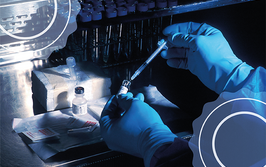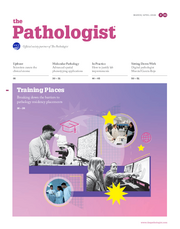FDA ruling on LDTs
Why the Association for Molecular Pathology is “very disappointed”
Helen Bristow | | 2 min read | News

Credit: Image sourced from Unsplash.com (Edited)
Laboratory developed tests (LDTs) in the US have been reclassified as in vitro diagnostic products (IVDs) and will be subject to FDA regulation. After years of debate, the FDA’s final decision was released on April 29.
Reacting to the announcement, Laurie Menser, CEO of the Association for Molecular Pathology (AMP), shared this statement:
“AMP is very disappointed with the FDA’s decision to move forward with its rule on laboratory developed tests. It’s unfortunate the agency continues to overstep its authority and bypass the country’s legislative process. AMP is currently reviewing the different aspects of the rule and assessing the many implications for our members and patient care. We will meet with other clinical laboratory organizations and key stakeholders to carefully evaluate our options and coordinate our response. We will provide a more detailed update in the near future.”
The Pathologist team has been tracking the unfolding story for years. Way back in 2016, James Nichols (now Medical Director, Clinical Chemistry at Vanderbilt University School of Medicine) wrote:
“I believe that these proposed FDA changes, while intended to enhance LDT quality, may actually have the opposite outcome. Increased costs could prevent labs from developing new LDTs and stifle future development. Increased regulations could lead to removal of currently offered LDTs from the market. Limited FDA staff and resources could delay review of pending submissions given the flood of new submissions from clinical laboratories. Dual systems of oversight from FDA and CMS with overlapping requirements and different viewpoints could confuse the market and further discourage new test development. Most importantly, the increased oversight could interfere with current physician-laboratory director relationship that fosters LDT development and professional test result interpretations within an institution. The future impact of this change in regulatory approach feels quite overwhelming.” Read the full article here.
More recently, I interviewed Mary Steele Williams, Executive Director of AMP, about the proposal. When I asked if she thought the proposal was misguided, this is what she said:
“Yes; if finalized, the proposed rule will impede the ability of clinical laboratories – including many academic medical centers, reference laboratories, and community health systems across the country – to rapidly develop, validate, and offer high-quality, innovative laboratory developed testing procedures (LDPs) for patient care. AMP refers to these services as LDPs instead of LDTs given they are vital procedures performed by qualified medical professionals.”
What do you think? If you have opinions to share on this topic, we’d love to hear them: [email protected]
Combining my dual backgrounds in science and communications to bring you compelling content in your speciality.




















